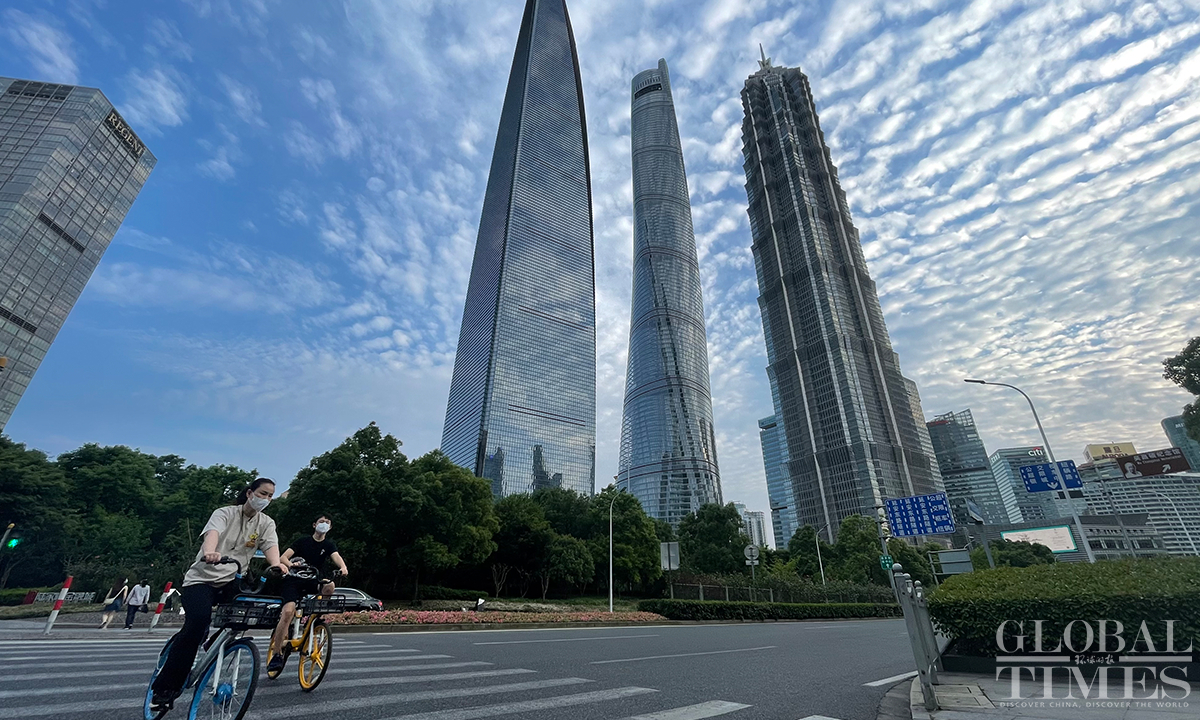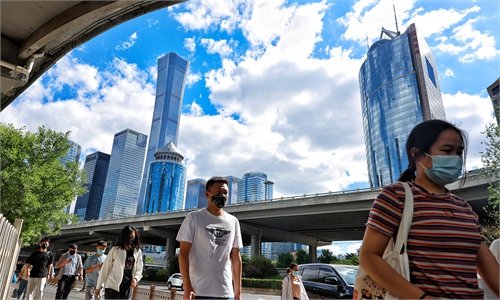Employees of a beauty salon in Shanghai test positive for COVID-19; city conducts mass screening in some areas

Two cyclists ride on a street of Pudong New Area, in East China's Shanghai, on May 31. Photo: Feng Yu/GT
Shanghai on Thursday confirmed five new local COVID-19 cases and one asymptomatic infection at the community level, including three employees from a beauty salon. The city will conduct mass screening in some areas during the weekend after lockdown restrictions were lifted over a week ago.
Shanghai will conduct a mass nucleic acid testing during the weekend in some zones including the Pudong New Area, Huangpu, Jing'an, Xuhui, Hongkou, Baoshan and Minhang districts, the local authorities announced on Thursday.
Nucleic acid testing is an important measure to improve the accuracy of epidemic surveillance and early warning to detect potential risks as early as possible, Zhao Dandan, Deputy Director of the Shanghai Municipal Health Commission, said at Thursday's press briefing.
The city will conduct mass screening for the areas under risk as well as those zones which have reported positive cases at the community level since June 1. A closed-loop management will be conducted during sample collection and will be lifted after the task is finished, according to Zhao.
A total of 16 employees and 481 customers of Shanghai's Red Rose Beauty Salon have been traced so far and the related epidemiological investigation and mass screening have been conducted, with more than 90,000 related residents taking nucleic acid tests, Wang Hongwei, local official from Xuhui district, said at the press briefing.
The other employees in the salon have been put under central quarantine and the place has been disinfected. "A preliminary investigation found that some employees did not take nucleic acid tests every day as required," Wang said, noting that the relevant responsibilities shall be investigated seriously based on regulations.
The salon resumed operations on June 1 with each customer required to scan the venue code and show their negative results of a nucleic acid test performed within 72 hours before receiving services, according to Wang.
Since June 1, when the city lifted lockdown restrictions in risk-free areas, there have been a number of sporadic cases reported, especially in older communities and venues providing services in central urban regions, said Zhao.
We must highly pay attention as the risk of epidemic rebound still exists and we cannot tolerate any slackening, Zhao said.
The salon's case reminds that there still exist risks in public places where people gather and the staff in the service industry should regularly get tested and use personal protective equipment, according to Zhao.
Epidemic prevention and control measures will be strengthened, including requiring businesses to disinfect fully before resuming operations and increasing the disinfection times for public facilities such as storage lockers, elevators, public toilets and garbage containers, according to the authorities.

